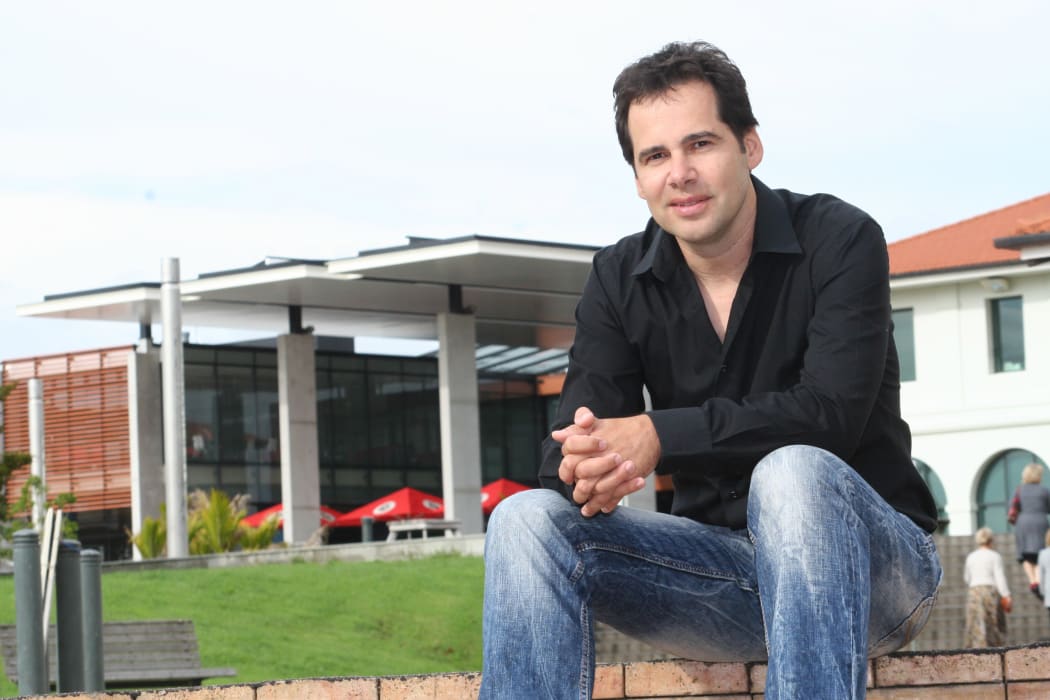It’s a strange thing – when you’re busy, you wish there were more hours in the day, but when you have a lot of time on your hands, it can feel as though the day just drags on and you don’t know what to do with yourself.
Imagine if time was a currency, and you could trade all those hours for valuable services?
When you were at a loose end, you could spend some time on a hobby, or helping one of your neighbours out. You could then bank those hours and then when you were next in a situation where you were wishing for more hours in the day, there actually would be more hours in the day – because you'd banked them.
This idea is called timebanking. Here’s how it works…
Subscribe to Two Cents' Worth for free on Apple Podcasts, Spotify, Stitcher, RadioPublic or wherever you listen to your podcasts

Photo: 123RF
Say you were going through a very busy time in your life… say you’d just moved house and you were working full time and bringing up a family all at once. Well, you could join a timebank, and borrow some time from other members in the timebank. You could list your requests; help with the school run and a helping hand with redecorating. Then when things have calmed down a bit, you could repay those hours back into the bank, offering your own skills to other members in the timebank who might need them.
Sounds good right? Well, the idea has taken hold in over thirty countries around the world and there are a handful of timebanks popping up all over New Zealand.
This might be a tricky concept to wrap your head around, but in some ways, the idea isn’t new.
Christoph Schumacher, a professor of economics and innovation at Massey University says that the idea isn’t dissimilar to Marxism in that it values each hour of labour equally, regardless of skill level. Schumacher says we should look to the issues that made communism tricky on a large scale to understand the limitations that may face timebanks.
“If you scale it up, people will start wanting to be paid or compensated slightly differently based on the skill level.”

Christoph Photo: Supplied
For instance, you might be happy to babysit for a member of the timebank in exchange for some baking, but Schumacher guesses that “you’d probably feel quite differently if you offer some of your higher skills for which you had to go to university or train or buy equipment.”
Taxing an alternative economy
And there’s also the issue of tax and regulation. When services are being traded in an alternative economy, they’re not being counted through GDP and so they can’t be taxed.
But in New Zealand, you’re not allowed to offer your primary professional skill through a timebank, and that clears up the issue of tax dodging and also the issue of feeling like your highly-skilled job is being devalued.
This does mean that there is a bit of a skills gap when it comes to professional services being offered through the timebank, but seeing as timebanks aren’t looking to replace the mainstream marketplace, but compliment it, that’s not such a big concern.
Jessica Edelbaum is an active member of the Taranaki Timebank, as well as working as their events marketing coordinator. She says:
“There is definitely a place for money, that makes the world go round at this point, however, on a personal note, timebank has made things that previously would not have been accessible to me, really accessible”
Edelbaum earns her timebank hours by baking, something she loves doing, and she spends her timebank hours on yoga classes, reiki sessions and homemade pasta.

Photo: 123RF
Social Connections
But timebanking, isn’t just about money-saving transactions… it’s about the social connections made through those transactions. In fact, the man who came up with the concept of timebanking, Edgar Cahn, stressed the importance of timebanks as a way to get members of the community interacting and recognising the value of the skills they had to offer.
Timebanks can also act as a really effective social safety net in difficult times. Lucie Ozanne is an associate professor at the University of Canterbury who started researching the Lyttelton timebank back in 2009. She noticed something interesting:
“A key time that people joined the timebank was when they were going through some kind of large change in their life, very commonly they were new to the community and didn’t know anyone, or they were widowed, divorced, they may have had a new child… a change in their life often brought them to the timebank as a mechanism of often connecting with others who were in that same period of change, or others for support.”
The Christchurch Quake effect
And it’s not just times of personal challenge that draw people to become members of a timebank, but also large scale challenges in the community. When the 2011 earthquakes rocked Christchurch and the surrounding area, homes were destroyed, lives turned upside down and the community needed to rally together to help people get back on their feet. Ozanne says that the timebank was instrumental in responding to the crisis and she saw the membership almost quadruple during that time.

Lucie Ozanne Photo: Supplied
“Timebank members came together and called over two hundred and fifty elderly members of the community to reassure them that things were okay, to see what kind of needs they had… someone might come in and say “my chimney’s come down I don’t know what to do” and so they were almost like a triage, they would connect them with people who could assist them.”
Jessica Edelbaum thinks that timebanks have a lot of untapped potential, but says that the way to expand the timebank membership is to employ coordinators who can commit to welcoming new members and helping them to make the most out of their membership.
So why are timebanks something we should be encouraging in our communities? Lucie Ozanne says:
“We need these sort of mechanisms, we need to ensure that people are connected with their neighbours because, let’s be honest, in the case of an emergency, it’s often your neighbours who are going to be the people who are most likely to assist, so it’s important to know your neighbours.”
And things are looking good for timebanks, Christoph Schumacher points out, people are getting more and more on board with the idea of sharing economies and that mindset shift will benefit timebanks too. Although Schumacher doesn’t see timebanks scaling up to rival the mainstream market economy, he does see a future where timebanks thrive in community environments:
“I think it will stay more in the kind of community, social network kind of sphere, on tasks that are kind of similar and more simple in nature.”
So, if you’re considering getting involved with a timebank, here’s some advice from Jessica Edelbaum:
“DO IT! I would say it’s an incredible way to meet people, get hours for your time and really value your time.”
Or you could take some advice from Gigi and Rowena, from the Taranaki Timebank.

